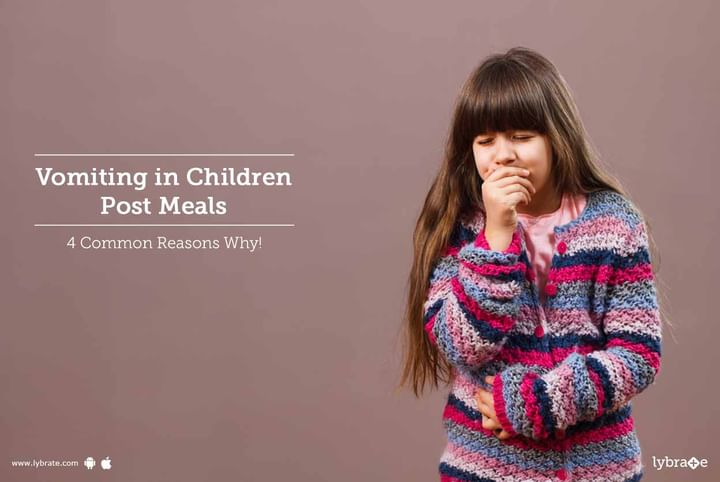Get the App
For Doctors
Login/Sign-up
Last Updated: Jan 10, 2023
BookMark
Report
Vomiting in Children Post Meals - 4 Common Reasons Why!
Dr. Amit NagpalPediatrician • 21 Years Exp.MBBS, MD - Paediatrics, Pediatric Cardiac Intensive Care Fellowship
Children might vomit after meals due to various causes. While they may not be life threatening or potentially harmful to the child, getting to the bottom of the problem to deal with it is better, so as to prevent it from becoming a chronic problem is definitely vital.
Listed below are some of the most common reasons children might throw up:
- Gastroenteritis: This may be virus, bacteria and parasite induced. The best way to deal with it is to eat clean food and wash hands with an antiseptic soap prior to each meal. It is usually seen in combination with diarrhoea.
- Allergies: Some children who throw up might do so as it is allergy induced. To diagnose the cause of food induced vomiting, the allergens must be noticed as soon as possible as there might be more than one food ingredient causing the reaction in the child. Each time the child throws up, the parents must note down all the food ingredients consumed by the child. This helps the paediatrician in better diagnosing the underlying cause of vomiting. In children up to the age of 4, foods such as rice, poultry, milk and soy often act as triggers and it is called ‘food protein induced enterocolitis syndrome’ (FPIES).
- Backing up of food: Anti peristalsis or the backward movement of food along the digestive tract might happen in children for a host of reasons. The digestive tract has muscles which prevent the backward flow of food and instead, force the food downwards i.e. from mouth to anus. Due to children having weaker musculature in their digestive tract, regurgitation might be a frequent occurrence.
- Reflux: Swallowing large amounts of air while eating can make the child bloated leading to reflux. Reflux can also take place if the baby is being overfed.
If the child is frequently throwing up after meals, keeping them hydrated is of utmost importance. Unless a doctor prescribes them anti-vomiting medicines, they shouldn’t be administered to children. If you wish to discuss about any specific problem, you can consult a pediatrician.



+1.svg)
